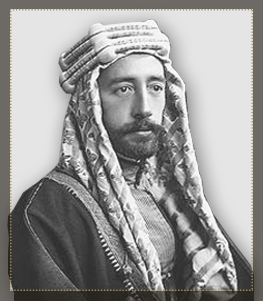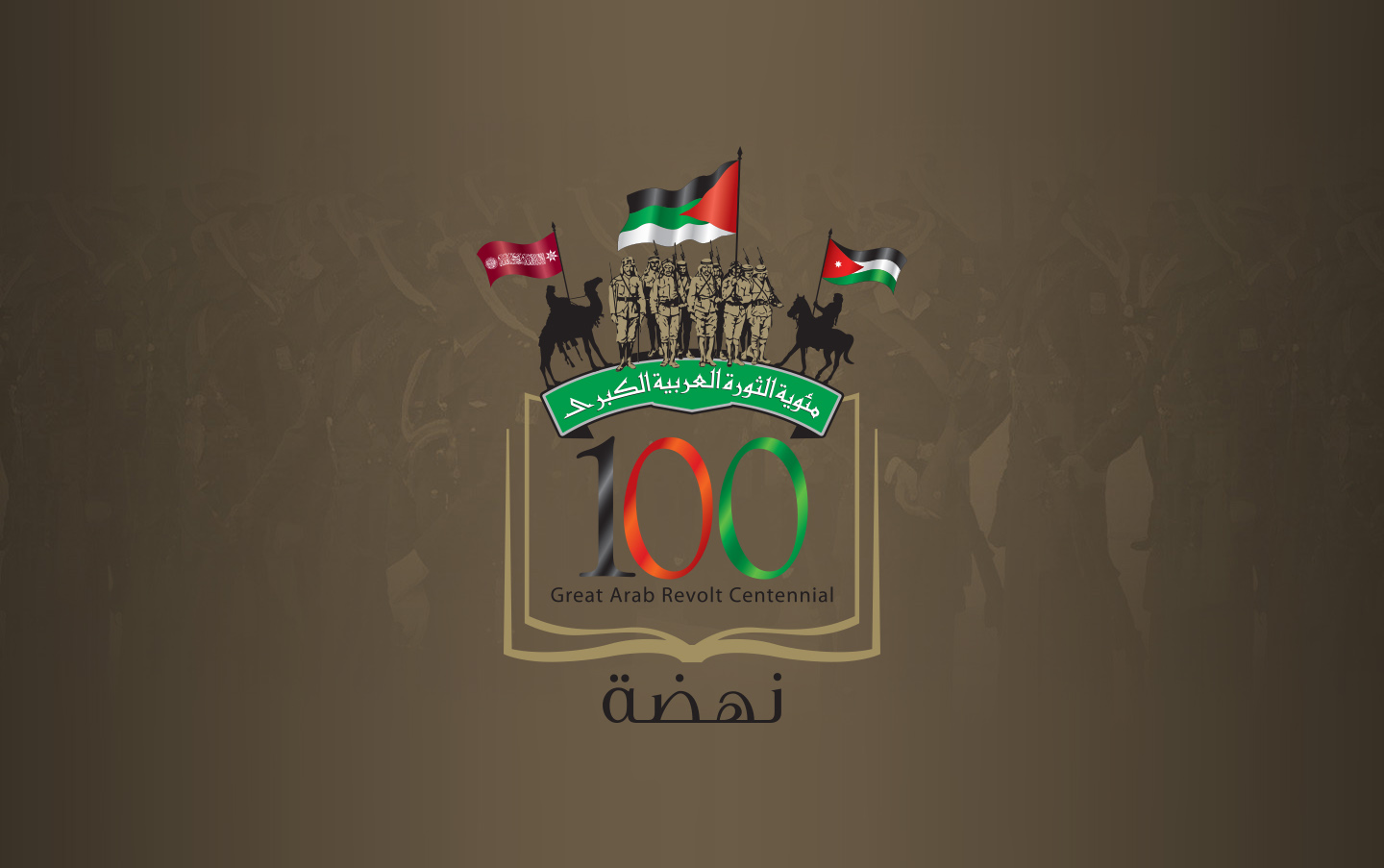
King Faisal bin Al Hussein
Prince Faisal bin Al Hussein was born in Mecca on 20 May 1883, where he received his elementary education, before continuing his studies in Istanbul and then returning to Hijaz with his father and siblings in 1908. In the following year, he was elected as a deputy for Jeddah in the Ottoman Chamber of Deputies.
In 1915, after members of secret societies contacted Sharif Hussein on leading the Arab Awakening, the Sharif sent his son Faisal to Damascus to look into the situation. When the tyranny of Djemal Pasha “the Butcher” intensified in Syria, his father sent him there again in 1916 to mediate for the free Arabs and leaders who were being tried in a military court. When the Butcher insisted on his ways and ordered the execution of the free Syrians on 6 May 1916, it became evident that the Arabs were standing at a crossroads. In early June of the same year, the Revolt was launched.
Faisal took charge of the Northern Army, and at first led the fighting around Medina Munawara with his brother Prince Ali. He then turned northwards, liberating Al Wajh, and then Aqaba, where he moved in August. The Northern Army continued to fight battles in the southern regions of Transjordan until September 1918, when it took part in the attack against the Turkish armies in Syria. It entered Daraa and then Damascus on the morning of 1 October 1918.
Faisal laid the foundations for the modern Syrian state; then Sharif Hussein sent him as the representative of Arabs at the Paris Peace Conference in 1919. When France and Britain decided to impose their mandates, the people of natural Syria refused the decision and pledged allegiance to Faisal on 8 March 1920 as King of Syria with its four parts: Syria, Lebanon, Palestine and Transjordan. Britain did not honour its promises to the Arabs, and the French army attached Syria. The Arab Army fought back against it in the unequal Maysaloun Battle in July 1920.
Faisal left Syria after the French occupation, and began leading diplomatic talks to demand the rights of Arabs. In early 1921, Britain responded to some of the Arabs’ demands, leading to the establishment of two Arab states under British mandates in Iraq and Transjordan. A referendum was held in Iraq in the summer of 1921, upon which Faisal was proclaimed King.
Faisal followed policies of moderation in reviving Iraq, seeking its stability and ridding it of the shackles of the mandate. He was successful in 1932, when the mandate was cancelled, and Iraq became a member of the League of Nations. But time did not allow Faisal to continue serving Arabs. He died in Switzerland, on 8 September 1933, of a heart attack while receiving treatment. His remains were moved to Baghdad where he was buried. He was succeeded by his son King Ghazi.

